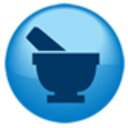Effects of nurse-led home-based exercise & cognitive behavioral therapy on reducing cancer-related fatigue in patients with ovarian cancer during and after chemotherapy: A randomized controlled trial.
キーワード
概要
BACKGROUND
High levels of fatigue have been documented in ovarian cancer patients. However, increased levels of fatigue are positively associated with a high risk of sleep disturbance and depression.
OBJECTIVE
To investigate the feasibility of a nurse-led home-based exercise and cognitive behavioral therapy (E&CBT) for ovarian cancer adults with cancer-related fatigue on outcomes of fatigue, plus other secondary outcomes (sleep disturbance and depression), either during or after completion of primary cancer treatment.
METHODS
Randomized, single-blind control trial.
METHODS
Gynaecologic oncology department of the First Hospital of Jilin University in China.
METHODS
72 eligible women who recently had surgery and completed their first cycle of adjuvant chemotherapy were randomly assigned to two groups.
METHODS
The experimental group received exercise and cognitive behavioral therapy. Five nurses with nursing master degree were trained to deliver this intervention. Patients received online interventions each week in the patient's place of residence or in the nurse-led clinic, as requested. Home visits, coupled with telephone-based motivational interviews twice a week were available with the permission of the participants. comparison group participants received services as usual.
METHODS
The primary outcome was measured by the Chinese version of the Piper Fatigue Scale that has 4 subscales (Behavior, Affect, Sensory, and Cognition). Secondary outcomes were measured using the Self-Rating Depression Scale and the Pittsburgh Sleep Quality Index questionnaire. Repeated-measure ANOVA was used to examine the effectiveness of this intervention in reducing fatigue, depression, and improving sleep quality.
RESULTS
For baseline comparisons, no significant differences were found between the two groups. After the interventions, total fatigue scores were significantly reduced from T1 to T2, to T3 in the experimental group (4.37, 4.24, 3.90), respectively. The comparison group showed almost no change in total fatigue score over time. In the repeated measures ANOVA, the differences of behavioral fatigue score (F=11.647, p=0.001) and cognitive fatigue score (F=5.741, p=0.019) were statistically significant for the group by time interaction. After the interventions, the experimental group participants demonstrated significantly lower symptoms of depression compared with the comparison group (T2: p=0.001 and T3: p<0.001). Sleep duration, sleep dysfunction, daytime dysfunction as well as total sleep quality significantly improved.
CONCLUSIONS
Nurse-delivered home-based E&CBT have measurable benefits in helping women with ovarian cancer to decrease cancer-related fatigue, depressive symptoms, and improving their quality of sleep.



